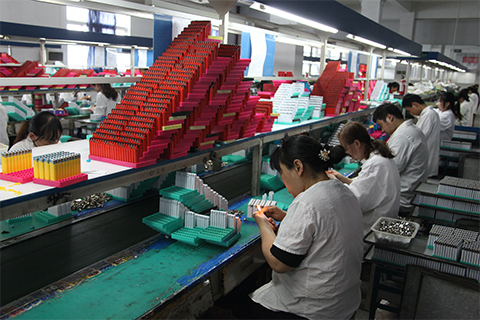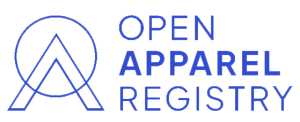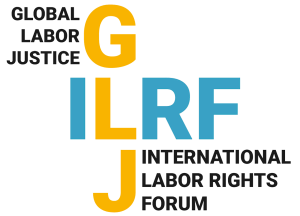UNGPs 10+ Blog Series: Data, Capacity, and Regional Approaches
This post looks at the use of data and regional approaches to addressing human rights abuses in business.
This post looks at the use of data and regional approaches to addressing human rights abuses in business.

This is the sixth in a series of blogs exploring the UNGPs 10+ roadmap through the perspectives of our partners. You can read the introduction here and view the full series here.
—
The seventh Action Area identified in the UNGPs 10+ is “More and Better Tracking of Progress,” and addresses the fact that labor exploitation and work-related human rights abuses are notoriously difficult to track and measure. This action item calls for more learning and monitoring specifically so that state actors can demand accountability, but the team behind the Open Apparel Registry says that this information needs to be shared more broadly.
 “To accelerate progress, it’s essential not just to consider how impacts and performance will be monitored, but also how that information will be shared. An essential, but often overlooked, piece in the puzzle to ensure that all stakeholders have access to this information is that all data gathered must be shared openly, to then stand the best chance of creating meaningful change quickly. Among many other benefits, adopting and incorporating open data principles enables stakeholders such as unions, manufacturers, companies and government to collaborate on remediation efforts within a supply chain – a win-win for all involved.”
“To accelerate progress, it’s essential not just to consider how impacts and performance will be monitored, but also how that information will be shared. An essential, but often overlooked, piece in the puzzle to ensure that all stakeholders have access to this information is that all data gathered must be shared openly, to then stand the best chance of creating meaningful change quickly. Among many other benefits, adopting and incorporating open data principles enables stakeholders such as unions, manufacturers, companies and government to collaborate on remediation efforts within a supply chain – a win-win for all involved.”
This action item also calls attention to the fact that while some leading companies are making policy changes aimed at addressing human rights, the actual impacts of their efforts still must be proven and measured. KnowTheChain has been extensively benchmarking corporate efforts to address labor exploitations in their supply chains for the last five years, and has seen this need firsthand – especially as the world is still dealing with the fallout from a global pandemic.
 “KnowTheChain tracks corporate efforts to address forced labor risks in their supply chains, going beyond an assessment of policies to look at what evidence companies can provide to show that their processes are effective and are having a positive impact. Our data has shown limited progress from companies on the themes of purchasing practices and worker voice; though it is essential for companies to address their own contribution to harm through their purchasing practices, and to ensure the protection of supply chain workers’ right to organize in order to address forced labor. We must see stronger performance from companies in these areas, which are critical to a just recovery, to ensure tangible outcomes for workers.”
“KnowTheChain tracks corporate efforts to address forced labor risks in their supply chains, going beyond an assessment of policies to look at what evidence companies can provide to show that their processes are effective and are having a positive impact. Our data has shown limited progress from companies on the themes of purchasing practices and worker voice; though it is essential for companies to address their own contribution to harm through their purchasing practices, and to ensure the protection of supply chain workers’ right to organize in order to address forced labor. We must see stronger performance from companies in these areas, which are critical to a just recovery, to ensure tangible outcomes for workers.”
The eighth and final action item, “More and Better International Cooperation and Implementation Support,” speaks to the UN’s own role, as well as the need for those of us committed to the work to increase investments in capacity-building.
It also focuses on the idea of spurring what the roadmap calls “regional races to the top.” Kimberly Rogovin is the Senior Seafood Campaign Coordinator for Global Labor Justice-International Labor Rights Forum, and she has seen the effectiveness of this particular strategy, as long as it’s implemented at the right level, with the right actors involved.
 “Workers, unionists and activists throughout Asia face similar challenges, such as the closing of civil society space, legal barriers to organize and retaliation for speaking out about human rights abuse. Through the Seafood Working Group, we’ve learned it’s critical to build regional platforms for frontline organizations to come together with international organizations, identify common goals and develop collective strategies to drive greater corporate and government accountability in the international seafood trade”
“Workers, unionists and activists throughout Asia face similar challenges, such as the closing of civil society space, legal barriers to organize and retaliation for speaking out about human rights abuse. Through the Seafood Working Group, we’ve learned it’s critical to build regional platforms for frontline organizations to come together with international organizations, identify common goals and develop collective strategies to drive greater corporate and government accountability in the international seafood trade”
The final blog in our series will encompass our own learnings, both through our work on the issue of corporate accountability and through the process of collecting these insights from our partners.